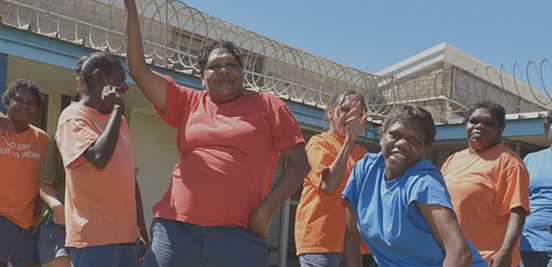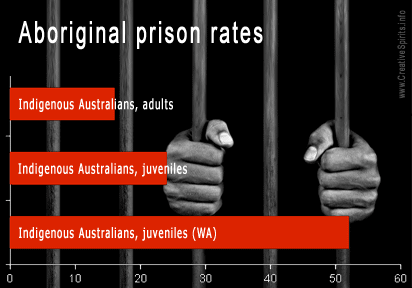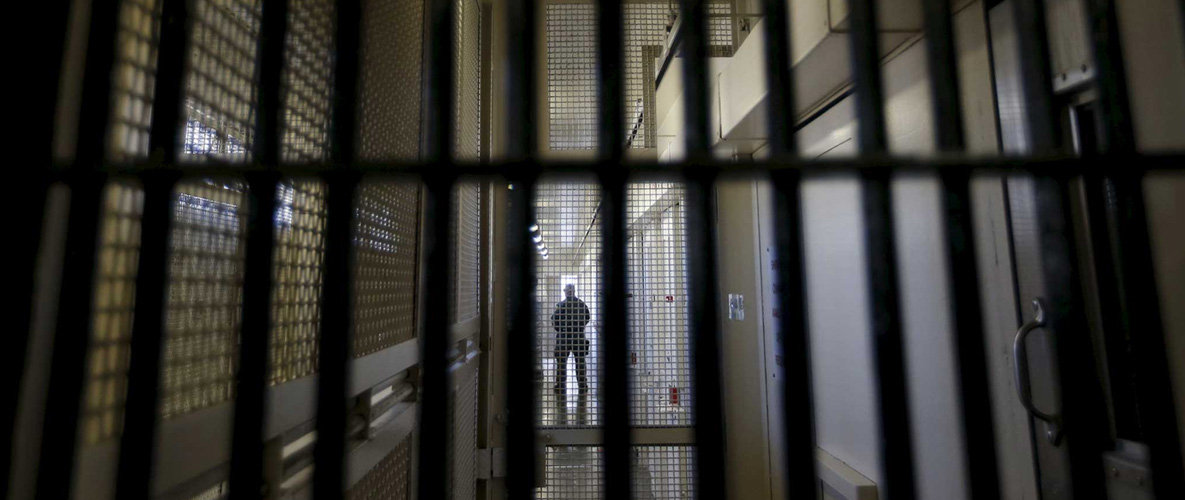Alwaght- Aboriginal and Torres Strait Islander women are the fastest growing prison population in Australia and continue to face discrimination in their indigenous land.
A new report has shed light on the alarming rate at which the Indigenous women are being incarcerated in Australia, raising concern over the "immeasurable harm" caused by the situation and urging authorities to put an end to "cycles of disadvantage" that systematically suppress Indigenous women.
According to the report, titled "Over-represented and overlooked: the crisis of Aboriginal and Torres Strait Islander women's growing over imprisonment," since 1991, the imprisonment rate of Aboriginal and Torres Strait Islander women increased by 248 percent.

Aboriginal and Torres Strait Islander people make nearly 3 percent of the adult Australian population, but make up around 27 percent of the adult prison population.
Aboriginal and Torres Strait Islander women are currently imprisoned at 21 times the rate of non-Indigenous women. By the end of June 2016, there were 1,062 Aboriginal and Torres Strait Islander women in Australian prisons, making up a staggering 34 percent of the adult female prison population.
Adrianne Walters, Acting Director of Legal Advocacy, HRLC, told the Guardian, “Imprisoning women, even when it’s for a short time on remand, causes a lot of upheaval not only in the lives of women but also their children."
“Some 80 percent of Aboriginal and Torres Strait Islander women in prison are mothers … so when we take Aboriginal women out of communities and out of families and into prisons, we are causing huge disruptions and we’re increasing the risk that their children will end up in the child protection system or potentially in the criminal justice system," Walters said.
Australia Officially Discriminates Aboriginals
Last month a UN Special Rapporteur on Indigenous Rights voiced deep concerns over Australia’s high rates of indigenous incarceration. And she believes this discrepancy is about discrimination, rather than indigenous Australians committing more crimes.

UN Special Rapporteur on Indigenous Rights Victoria Tauli-Corpuz explained that Australian authorities take indigenous children away from their families at nearly 10 times the rate of non-indigenous children. She further said this is why there are so many indigenous Australians in youth detention centers. Evidence of official discrimination is in the fact that authorities send children to these centers for very trivial reasons.
Based on multiple surveys, at least 20% of Australians admit to holding racist attitudes against indigenous people. This minimum figure holds true between 1969 and the present day. Also, a 2014 study found that at least a fifth of those surveyed said they would express their racist attitudes towards Aboriginals when interacting with them.
Another study released in 2014 underscored that one in five Australians would move if an Aboriginal or Torres Strait Islander sat next to them.
Life as an Aboriginal in Australia can be extremely distressing. A 2015 study showed that over 70% of Aboriginals said they were mistreated in the past six months.
Aboriginals subjected to genocide
Last February, Amnesty International rights group has slammed Australia for rights violations against Aboriginals in the country, saying indigenous kids are 24 times more likely to be arrested than their non-native peers. The Amnesty report slammed the Australian justice system’s treatment of Aborigines.
Aboriginal Australians have long been subjected to genocide, forced permanent removal, dispossession, racial discrimination, and the destruction of their land.
Australia’s nearly 700,000 indigenous citizens rank near the bottom of almost every economic and social indicator for the country’s 23 million people.



























